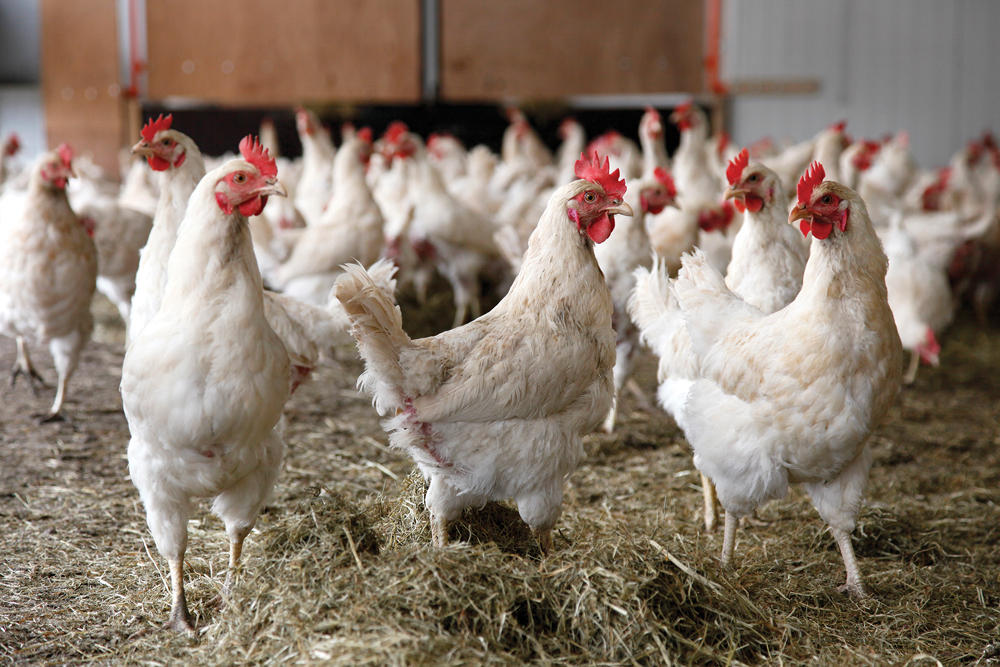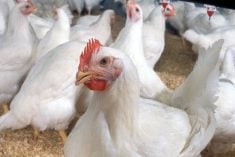Farmers are a small group, so standing up for each other is necessary when it comes to online attacks — even those as fraught as animal welfare concerns. However, responding requires wisdom, says one animal welfare expert.
“Don’t argue for the sake of arguing but try to find a proper channel and respond to those who are willing to hear about it and engage in the discussion,” said Stephane Beaudoin in an interview with the Co-operator.
Beaudoin is the founder of Gestbeau Inc., an animal welfare consulting and auditing firm based in Quebec.
Read Also

AAFC organic research program cut
Canada’s organic sector says the loss of a federal organic research program at Swift Current, Sask., will set the industry back.
Sharing trusted information isn’t optional for the industry, said Beaudoin during a seminar hosted by the Canadian Centre for Food Integrity on May 26.
Any idea that public trust is a worthy goal but not relevant to business success is outdated, he added. Public trust can determine the level of social acceptance that farmers and the meat industry experience.
When to speak up
If someone makes a direct attack on a farmer, group or member of the industry, this is the time to come to their aid, Beaudoin said.
For example: What if someone accuses a trucking firm of mistreating animals in transit? They post on the company’s page, complete with pictures.
Sometimes it’s hard to determine the facts, Beaudoin said. People also make mistakes or have accidents.
If the person did everything they could to treat the animals well, then stand up for them, Beaudoin said. Explain what happened, or what could have been done to avoid it.
“The more that we would respond, the more people will trust that we care and that we do the right things,” Beaudoin said.
This also means making sure farmers and workers know the best practices, Beaudoin added. Employees for the hypothetical trucking firm need to know that as long as they follow animal care standards, they’ll be defended. If they don’t, defence will be difficult.
However, defence is only half of a strategy.
“The long-term solution is not to frantically respond to every statement, but rather to ensure that the public is unequivocal about which credible references to follow,” Beaudoin said in his presentation.
This means farmers, producer groups and companies clarifying facts and telling their stories from different angles.
For instance, farmers can demonstrate concern for the animals under their care.
This is a value pet owners can understand, Beaudoin told the Co-operator. Many pet owners give their fuzzy friends the best food and care possible.
What they might not know is that farmers do the same — and more.
A farmer with 25,000 hens is monitoring them 24-7, he said. The hens eat perfectly balanced diets.
“They eat like athletes,” Beaudoin said. “We balance what they eat more than what we do for ourselves.”
If sick, they’re treated if possible, or euthanized. Their housing is climate controlled, and air quality is also monitored. The farmer consults with experts on many aspects of the chickens’ health.
The industry also can’t shy away from hard topics.
“I think we need to talk more about the practices, how we do it,” Beaudoin said.
Farming comes with animal handling, and with practices like dehorning, which ensure the animals don’t hurt each other. However, these are done in ways that minimize pain and distress.
“We’ll never find a way to get slaughter sexy,” Beaudoin said. “Slaughtering an animal is not nice to see.”
However, meat producers can talk about practices that ensure animals aren’t suffering in the process.
When to shut up
Sometimes it doesn’t pay to respond.
Widespread, impersonal attacks and vague, impersonal comments are generally not worth correcting, Beaudoin said.
If someone clearly doesn’t know what they’re talking about, this is probably not a good time to reply. They may not be open to a debate. Wait for something more precise to respond to, Beaudoin said.
However, if the person is using good sense and making an intelligent argument, they’re likely willing to make an intellectual effort. This is a good time to respond.
If the person or article is reporting a fact — for instance, information from a new study, “Be open enough to listen,” Beaudoin said.
Is there enough truth that we need to think further? The industry can be open to criticism, too, Beaudoin said.
















